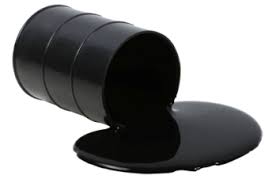Business
Oil Price Falls to Seven-Month Low Due to Lockdown in China and Fears of Recession

Ibekimi Oriamaja Reports
The price of crude oil dropped Wednesday to its lowest level since before Russia invaded Ukraine as COVID-19 restrictions in the world’s top crude importer China and anticipation of further interest rate increases fueled concerns about a global economic slowdown and decreased fuel consumption.
After declining 3% in the previous session, Brent oil futures dropped $1.35, or 1.5%, to $91.48 a barrel earlier. The contract’s session low was $91.35, which was its lowest value since this year’s February 18th.
Additionally, the West Texas Intermediate crude futures for the United States fell $1.55, or 1.8%, to $85.33. The benchmark dropped to $85.17 for the session low, the lowest level since January 26.
It comes 48 hours after the Organization of Petroleum Exporting Countries (OPEC) and its partners reduced by 100,000 barrels per day their October supplies to the global economy, highlighting worries over falling crude prices amid recession fears.
In addition, the international oil cartel reduced Nigeria’s production for the month by 4,000 barrels per day, from the 1.830 million bpd allotted in September to 1.826 million bpd.
The decision by OPEC also nullified the modest increase in oil production that had been agreed upon in September in response to requests for increased supply from the United States and other significant users.
Nigeria, however, has historically struggled to meet its production targets. In the assessment for July, production fell to a record low of 1.024 million bpd after previously reaching 1.083 million bpd.
According to Reuters, China’s strict zero-COVID policy has put cities like Chengdu, which has 21.2 million residents, under lockdown and reduced oil demand in the world’s second-largest consumer country.
In August, the nation’s exports and imports lost impetus, as growth fell far short of expectations. According to customs data released on Wednesday, the amount of crude oil imported decreased 9.4% in August compared to the same month last year due to outages at state-run refineries and reduced production at independent facilities because of low profits.
Crude stockpiles in the United States are anticipated to have decreased for a fourth week in a row, down by an estimated 733,000 barrels in the week ending September 2.
According to information from the Department of Energy, crude stockpiles in the Strategic Petroleum Reserve (SPR) of the United States decreased by 7.5 million barrels in the week ending September 2 to 442.5 million barrels, the lowest level since November 1984.
However, as the market attempted to combine demand concerns tied to potential recession risks with worry that Russia could cut off all oil and gas supply on Wednesday, oil prices afterwards swung wildly.
Brent crude futures subsequently rose 2 cents, or 0.02 percent, to $92.85 a barrel after hitting session lows not seen since before Russia’s invasion of Ukraine, while US West Texas Intermediate crude rose 9 cents, or 0.1%, to $86.97.
Oil recovered some of its losses after Russian President Vladimir Putin vowed to stop all oil and gas shipments if Russia’s energy resources were subjected to price controls. The possibility of a global economic recession is contributing to the market’s ambivalent pessimistic outlook.
The shutdown of the Nord Stream 1 pipeline, according to credit rating agency Fitch, has made a recession in the euro zone more likely.
-

 Politics5 days ago
Politics5 days agoKogi gov, Ododo used immunity to protect Yahaya Bello from EFCC arrest – Oshiomhole
-

 Entertainment5 days ago
Entertainment5 days ago‘Disrespectful’ – Mr Macaroni slams Wizkid for shading Don Jazzy
-

 Politics4 days ago
Politics4 days agoSouth-South Govs Meet In Yenagoa, Urge FG To Review Power Situation
-

 Politics4 days ago
Politics4 days agoFormer IYC Scribe Congratulates Hon. Maxwell Ebibai on Reappointment as Bayelsa Commissioner for Finance.
-

 Business4 days ago
Business4 days agoWhy CBN Banned Opay, Palmpay, Kuda Bank, Moniepoint From Boarding New Customers
-

 Politics4 days ago
Politics4 days agoHon. Alapala Felicitates with Commissioners for successful inauguration and thank the governor for their appointments.
-

 Niger Delta4 days ago
Niger Delta4 days agoRE: PROTEST AGAINST PAP BOSS DR DENNIS OTUARU, AN UNNECESSARY DISTRACTION THAT SHOULD NOT BE TAKEN SERIOUSLY.
-

 News2 days ago
News2 days agoLocal Content, Local Fraud




